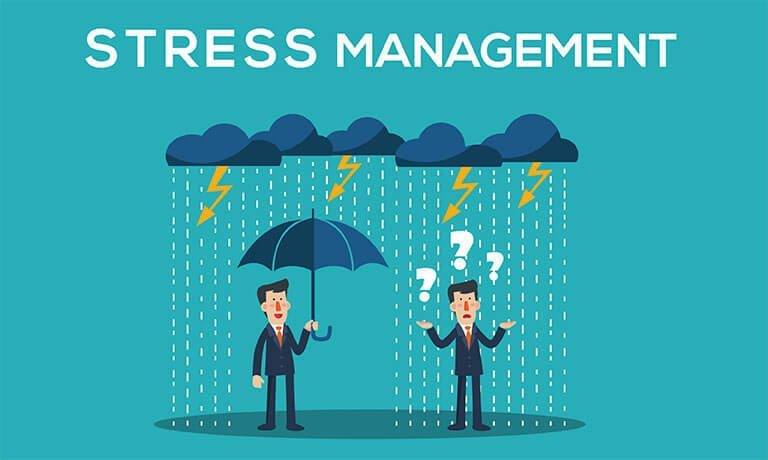Home » Course Layouts » Free Course Layout Udemy
Stress management is a wide spectrum of techniques and psychotherapies aimed at controlling a person's level of stress, especially chronic stress, usually for the purpose of and for the motive of improving everyday functioning.
0
59
English
English [CC]
- Learn basic syntax that can apply to any language.
- Learn what is a programming language and the basic concepts for beginners.
- Understand what is Javascript in it's truest form.
- Know the basic syntax of Javascript.
- Know some hidden quirks in Javascript.
Description
It may seem like there’s nothing you can do about stress. The bills won’t stop coming, there will never be more hours in the day, and your work and family responsibilities will always be demanding. But you have a lot more control than you might think. In fact, the simple realization that you’re in control of your life is the foundation of managing stress. Stress management is all about taking charge: of your lifestyle, thoughts, emotions, and the way you deal with problems. No matter how stressful your life seems, there are steps you can take to relieve the pressure and regain control.
Why is it so important to manage stress?
If you’re living with high levels of stress, you’re putting your entire well-being at risk. Stress wreaks havoc on your emotional equilibrium, as well as your physical health. It narrows your ability to think clearly, function effectively, and enjoy life. Effective stress management, on the other hand, helps you break the hold stress has on your life, so you can be happier, healthier, and more productive. The ultimate goal is a balanced life, with time for work, relationships, relaxation, and fun—and the resilience to hold up under pressure and meet challenges head-on. But stress management is not one-size-fits-all. That’s why it’s important to experiment and find out what works best for you. The following stress management tips can help you do that.Identify the sources of stress in your life
Stress management starts with identifying the sources of stress in your life. This isn’t as straightforward as it sounds. While it’s easy to identify major stressors such as changing jobs, moving, or going through a divorce, pinpointing the sources of chronic stress can be more complicated. It’s all too easy to overlook how your own thoughts, feelings, and behaviors contribute to your everyday stress levels. Sure, you may know that you’re constantly worried about work deadlines, but maybe it’s your procrastination, rather than the actual job demands, that are causing the stress. To identify your true sources of stress, look closely at your habits, attitude, and excuses:- Do you explain away stress as temporary (“I just have a million things going on right now”) even though you can’t remember the last time you took a breather?
- Do you define stress as an integral part of your work or home life (“Things are always crazy around here”) or as a part of your personality (“I have a lot of nervous energy, that’s all”)?
- Do you blame your stress on other people or outside events, or view it as entirely normal and unexceptional?
Course content
-
- Stress Management 00:05:00
-
- General Awareness 00:25:00
- What is Stress? 00:25:00
- Stress Feelings 00:10:00
- Types of Stressors 00:40:00
- External Stressors 00:50:00
- Internal Stressors 00:40:00
- Types of Stress 00:25:00
- The Individual 00:30:00
- Endocrine System 00:10:00
- Endocrine System Responses 00:10:00
- General Adaptation Syndrome 00:30:00
- Symptoms of Stress 00:40:00
- Stress Related Illnesses 00:20:00
- Costs of Stress 00:10:00
- Stress at Work 00:25:00
- Factors Influencing Work Stress 00:10:00
- The Drive for Success 00:10:00
- Uncertainty 00:20:00
- Changing Work Patterns 00:10:00
- Working Conditions 00:10:00
- Work 00:20:00
- Responsibility 00:10:00
- Relationships at Work 00:20:00
- Self – help 00:30:00
- Causes of Stress 00:30:00
- Now do we Agree with the Statement 00:20:00
- Stress Control 02:30:00
- Alternatives 00:10:00
- Purpose of the Standards Around the World FREE 00:30:00
- British Standards FREE 02:00:00
- European Standards FREE 02:00:00
N.A
- 5 stars0
- 4 stars0
- 3 stars0
- 2 stars0
- 1 stars0
No Reviews found for this course.
Instructor
OpenCoursa
Accessible Education for Everyone
5
5
6
24772
4637
We are an educational and skills marketplace to accommodate the needs of skills enhancement and free equal education across the globe to the millions. We are bringing courses and trainings every single day for our users. We welcome everyone woth all ages, all background to learn. There is so much available to learn and deliver to the people.
Explore Free Courses
Access valuable knowledge without any cost.
{"title":"","show_title":"0","post_type":"course","taxonomy":"course-cat","term":"engineering-skills,health-and-safety","post_ids":"","course_style":"free","featured_style":"course6","masonry":"","grid_columns":"clear4 col-md-3","column_width":"268","gutter":"30","grid_number":"4","infinite":"","pagination":"","grid_excerpt_length":"20","grid_link":"1","grid_search":"0","course_type":"","css_class":"","container_css":"","custom_css":""}










